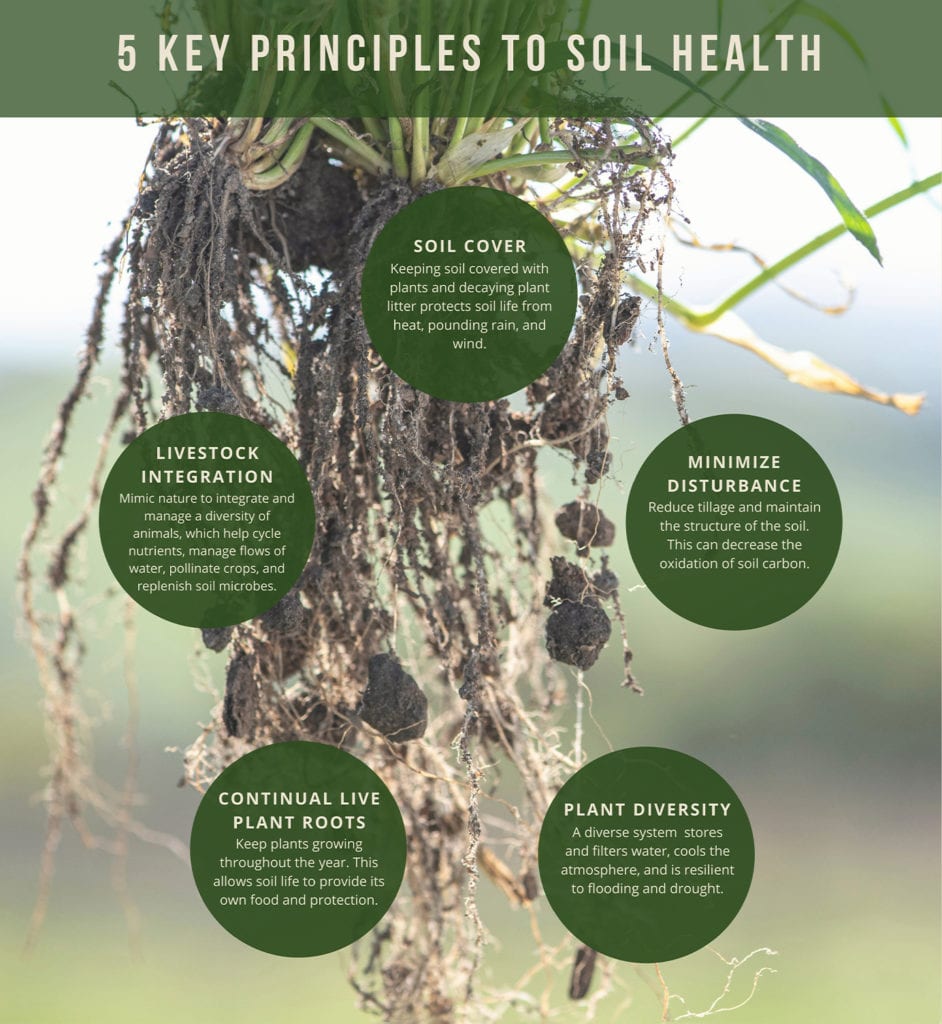There are approximately 500 acres of irrigated crop ground on the ranch. It was leased to a large organic vegetable operation in 2002 and transitioned to organic certification in an effort to make the operation more sustainable. As we learned more about healthy soil and how it is created, it became clear that the organic agriculture that was happening was still degrading rather than improving soil health. In 2016 we began implementing a plan to transition management of the crop ground to the ranch operation and are currently farming 300 of the 500 acres.
Our challenge is to develop organic, minimum till systems that will regenerate the soil while creating cash crops. We use the 5 principles of soil health in our design and management. This means incorporating plant diversity across both time and space and grazing animals. We keep the ground covered, grow living plants throughout the growing season, and minimize disturbance in the form of tillage or inputs. This is a radical paradigm shift from annual monocultures of cash crops. We are in the early stages of regenerating the soil and developing new systems. It is very much a work in progress.
Farming Principles for Paicines Ranch
- Treat soil as a complex living entity and manage for maximum health, carbon, water holding capacity, crop quality and resilience.
- Design Polycultures for integration of livestock in order to address multiple management functions including nutrient cycling, vegetation control, suckering, pest suppression and successional development of plants and soils.
- Encourage biological components with multiple ecological and economic attributes such as livestock for grazing/browsing, fiber, meat, milk, and offspring; plants for food, forage, shade, windbreak, nitrogen, deep nutrient cycling and habitat for insects and wildlife.
- Maximize diversity inside and outside crop plantings to include hedgerows, pollinator plants, companion plants and beneficial insect, wildlife and predator habitat plantings – emphasize native plants.
- Manage croplands to match or exceed diversity and health of exemplary regional standards.
- Encourage passion, inquiry, trust, support and collaboration in a work environment that is creatively, economically and intellectually rewarding as well as fun.
- Create exceptional quality, nutritional density and distinctiveness in all products.
- Provide open sharing and dissemination of the practices and principles being utilized as well as our knowledge and understanding of this project including training and educational workshops.
- Monitor to direct management and document all relevant indicators
- Develop and favor practices that are proactive in regards to the reality of declining resources (fossil fuel, fertilizer, water) increasing population and climate change.
- Make maximum use of solar energy and minimum use of fossil fuels.

